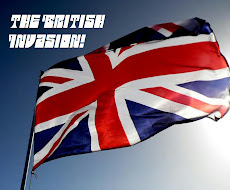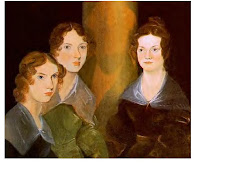This article is based on an essay I wrote in college back in the early 1980s. Versions of it have appeared on the websites “Beatles Ireland” and “Beatlefan/PLUS!”)
THE BEATLES AND THE BARD
Comparing Shakespeare's Sonnets 30 and 8 with the Beatles’ “In My Life” and “Hey Jude”
______________________
Sonnet Number Thirty
When to the sessions of sweet silent thought
I summon up remembrance of things past,
I sigh the lack of many a thing I sought,
And with old woes new wail my dear time's waste.
Then can I drown an eye, unus’d to flow,
For precious friends hid in death's dateless night,
And weep afresh love’s long since cancel’d woe,
And moan th’ expense of many a varnish’d sight.
Then can I grieve at grievances foregone,
And heavily from woe to woe tell o’er
The sad account of fore-bemoaned moan.
Which I new pay as if not paid before.
But if the while I think on thee, dear friend,
All losses are restor’d, and sorrows end.
In My Life
There are places I’ll remember
All my life, though some have changed;
Some forever, not for better,
Some have gone and some remain.
All these places have their moments
With lovers and friends I still can recall,
Some are dead and some are living -
In my life, I've loved them all.
But of all these friends and lovers,
There is no one compares with you.
And these memories lose their meaning
When I think of love as something new.
Though I know I’ll never lose affection
For people and things that went before,
I know I’ll often stop and think about them,
In my life, I'll love you more.
___________________
Sonnet Number Eight
Music to hear, why hear’st thou music sadly?
Sweets with sweets war not, joy delights in joy.
Why lov’st thou that which thou receiv’st not gladly,
Or else receiv’st with pleasure thine annoy?
If the true concord of well-tuned sounds,
By unions married, do offend thine ear,
They do but sweetly chide thee, who confounds
In singleness the parts that thou shouldst bear.
Mark how one string, sweet husband to another,
Strikes each in each by mutual ordering,
Resembling sire and child and happy mother
Who, all in one, one pleasing note do sing;
Whose speechless song, being many, seeming one,
Sings this to thee: “Thou single wilt prove none.”
Hey Jude
Hey Jude, don’t make it bad,
Take a sad song and make it better.
Remember to let her into your heart,
Then you can start to make it better.
Hey Jude, don’t be afraid,
You were made to go out and get her.
The minute you let her under your skin,
Then you can begin to make it better.
And anytime you feel the pain, Hey Jude, refrain,
Don’t carry the world upon your shoulders.
For don’t you know that it’s a fool
Who plays it cool by making his world a little colder?
Hey Jude, don't let me down,
You have found her, now go and get her.
Remember to let her into your heart,
Then you can start to make it better.
So let it out and let it in, Hey Jude, begin,
You’re waiting for someone to perform with.
And don’t you know that it’s just you, Hey Jude, you do,
The movement you need is on your shoulder.
Hey Jude, don’t make it bad,
Take a sad song, and make it better.
Remember to let her under your skin,
Then you can begin to make it better, better, better, better...
_____________________
So much has been written about how the Beatles changed the course of popular culture, introducing themes and musical arrangements that had never before been incorporated into traditional Top 40 songs. And yet most of the Beatles’ songs were based on the theme of love, in one form or another. And some of their lyrics bear a striking resemblance to the words of another ground-breaking English artist, William Shakespeare. Two songs in particular, John Lennon’s “In My Life” and Paul McCartney’s “Hey Jude,” use similar imagery and tackle the same themes that Shakespeare addressed in his Sonnets Numbers 30 and 8.
“In My Life” and Sonnet 30 both compare reflections on lovers past with the hope of future love. Shakespeare spends the first twelve lines of his sonnet reminiscing about the sadness of his memories. But then he turns the tone of his poem around completely in his final couplet, closing with the happy thought of his new dear friend. Lennon, by contrast, divides his lyrics almost evenly between the “remembrances of things past” and the joy he finds with his new lover, dedicating a verse to each.
Yet the memories of past loves, dead friends and lost places from Lennon’s childhood continue to haunt him throughout both stanzas. And unlike Shakespeare, who proclaims that thinking on his new dear friend restores his losses and ends his sorrows, Lennon points out how the past and present are intertwined (“these memories lose their meaning when I think of love as something new”). One can almost picture both writers sitting in quiet rooms somewhere in England, lost in “sweet silent thought” as they reflect upon their sad life experiences, yet each feeling the urge to put pen to paper to celebrate the restorative power of finding a new love.
The lyrics to “Hey Jude” and Sonnet 8 approach the notion of “new love” from a different angle. In both poems, the narrator urges another person to seek a lover. However, Paul McCartney's lyrics differ more strongly from the Bard’s than Lennon’s did. McCartney uses several “stanzas” and a “chorus” (okay, verses and a “middle eight”!) to address the common theme of encouraging a young man to seek a lover and end his sadness. But both McCartney and Shakespeare begin and end their poems with similar invocations to “take a sad song and make it better.” Both also draw on the image of being weighed down by carrying a heavy burden alone. And knowing from Beatle history that Paul was inspired to write “Hey Jude” during a visit with Julian and Cynthia Lennon on the occasion of the Lennons’ divorce, I find an unexpected poignancy in my comparative reading of McCartney’s song with Shakespeare's lines,
Resembling sire and child and happy mother
Who, all in one, one pleasing note do sing.
The lyrics to “Hey Jude,” of course, constitute barely half of the song, with the latter part of the composition taken up by an extended chorus of “na-na-nas” (a “speechless song” perhaps? Certainly Shakespeare was no stranger to “hey nonny nonnies”!) But the musical arrangement of McCartney’s song, which starts with a single voice and piano, adds acoustic guitar and soft background vocals, then fills up with drums, electric guitars, and finally a choir of singers and a swelling of orchestral support, echoes the sentiment which holds both poems together, that “thou single wilt prove none.”
The centuries that separate the publication of Shakespeare’s and the Beatles’ work saw myriad changes in language and lyrical style. Moreover, the restraints and conventions imposed by the two forms of poetry – writing words to fit the meter of a sonnet and the rhythm of a popular song – differ strongly. But the themes of lost love, fear of new beginnings, and the ultimate redemptive power of love, remain ever fresh.

